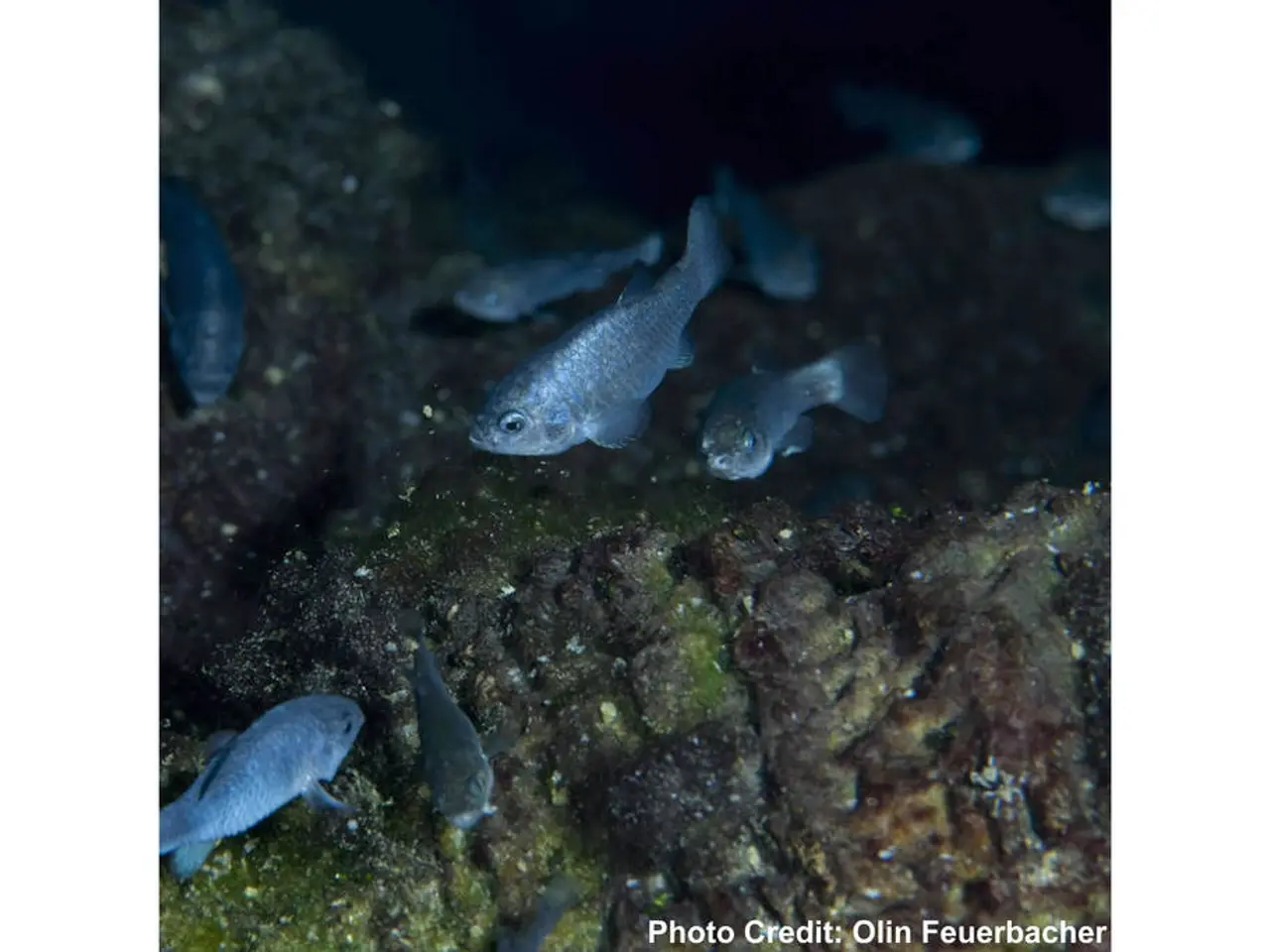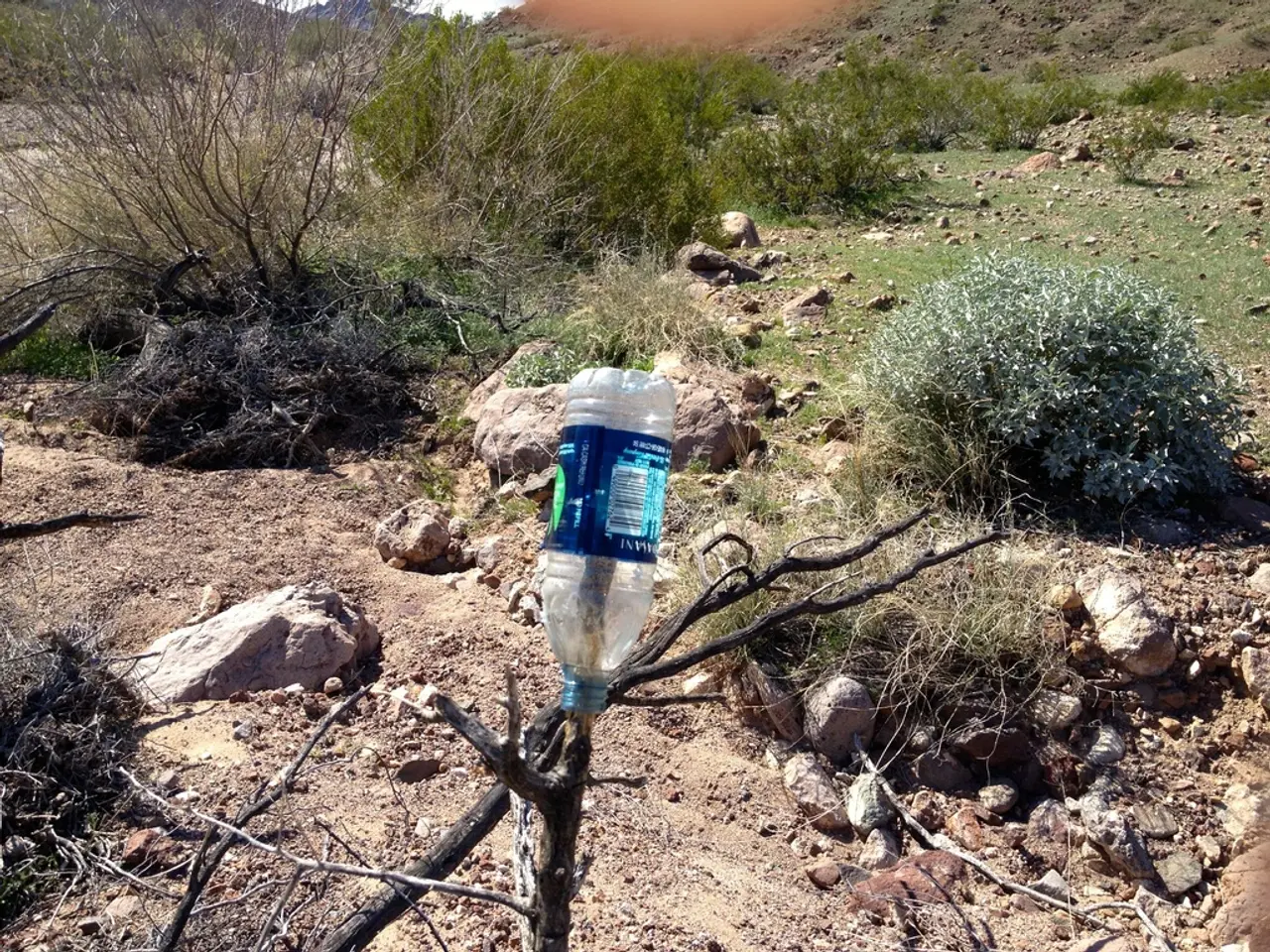"2025's National Fish Farmers Day Celebration: Government Unveils 17 Additional Fish Farming Clusters and Initiates Rs 105 Crore Worth of Projects to Foster Sustainable Fishing and Expand the Nation's Maritime Economy"
The National Fish Farmers Day 2025, held on July 10 at ICAR-CIFA in Bhubaneswar, Odisha, saw the launch of several key initiatives aimed at bolstering India's aquaculture and fisheries sector.
Union Minister Rajiv Ranjan Singh inaugurated 17 new fisheries clusters under the Pradhan Mantri Matsya Sampada Yojana (PMMSY), increasing the total number of fisheries clusters in India to 34. These clusters aim to strengthen fisheries value chains, enhance rural livelihoods, and promote environmentally sustainable aquaculture practices.
In addition, the minister inaugurated and laid the foundation for 70 fisheries-related projects worth Rs 105 crore across 11 states. These initiatives are designed to enhance quality standards, build technical capacity, and improve overall efficiency in aquaculture practices.
Secretary Dr. Abhilaksh Likhi shared plans for new initiatives in Odisha, including scampi hatcheries, aquaparks, and disaster preparedness programs in cyclone-prone coastal areas. These efforts will be supported through strategic partnerships with NABARD, the MSME Ministry, and the Ministry of Food Processing Industries to improve infrastructure, financing, and market access.
The event also marked the release of the ICAR Training Calendar and the unveiling of new guidelines on seed certification and hatchery operations. These measures are intended to ensure quality standards, technical capacity building, and improved efficiency in aquaculture practices.
Ravi Kharvi, a fish farmer from Karnataka, won the Best Marine Fish Farmer Award on World Fisheries Day 2024, reflecting the sector's growing recognition and success.
Minister of State Prof. S.P. Singh Baghel applauded ICAR's role in developing innovative technologies and encouraged fishers to utilize insurance schemes, quality seed access, and modern aquaculture methods.
India was recognized as the second-largest fish producer globally, with inland fisheries contributing around 75% of total fish production. The sector supports over 3 crore people, demonstrating significant rural employment and food security contributions. Ongoing investments of Rs 38,572 crore under PMMSY are spearheading the sector's transformation.
Cluster development, according to Ravi Kharvi, is crucial for achieving Vision 2047, a roadmap for a resilient, inclusive, and globally competitive fisheries sector. The government announced a focused cluster-based growth strategy in niche areas such as pearl farming in Hazaribagh, ornamental fisheries in Madurai, tuna fishing in the Andaman & Nicobar Islands, and coldwater fisheries in the Himalayan region.
The news was first published on July 11, 2025. The event was organized by the Department of Fisheries under the Ministry of Fisheries, Animal Husbandry & Dairying.
[1] [2] [4] (References omitted for Markdown format)
- The collaboration between NABARD, the MSME Ministry, and the Ministry of Food Processing Industries will support new initiatives in Odisha, focusing on infrastructure development, financing, and market access in the fisheries sector.
- The launch of seventeen new fisheries clusters under PMMSY, along with the seventy fisheries-related projects across various states, will aim to improve overall efficiency, build technical capacity, and enhance quality standards in the finance sector of the Indian aquaculture industry.
- The Ministry of Education and Self-Development might consider incorporating the National Fish Farmers Day as a case study in their curriculum to emphasize the role of technology in business, as innovative technologies have significantly contributed to India's global competitiveness in the fisheries sector.
- General news outlets might cover the growth of India's sports fishing industry, particularly niche areas such as pearl farming in Hazaribagh, ornamental fisheries in Madurai, tuna fishing in the Andaman & Nicobar Islands, and coldwater fisheries in the Himalayan region, as these initiatives align with the government's focus on cluster-based growth strategies.




